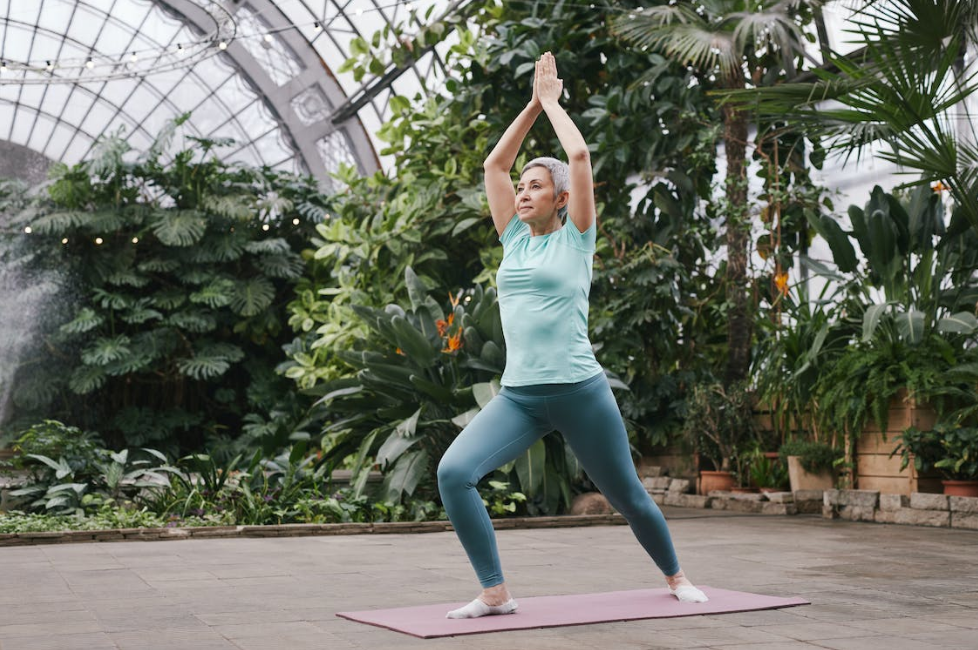
Numerous studies have linked regular physical activity to good aging, and in particular to a reduced risk of chronic diseases. Now, a new paper in the Proceedings of the National Academy of Sciences journal suggests that this is not a new phenomenon—exercise is a part of our evolutionary heritage. Biomechanical researchers and evolutionary biologists from Harvard University refer to this as the "active grandparent hypothesis." It states that as we age, physical activity changes processes in the body to extend the life and maintain health. The prevalent notion, especially in Western societies, that later decades of life are more unhealthy than earlier decades is called "late decade disease."
"Our message here is the reverse of what's usually recommended, which is to slow down and do less," he says. "As we get older, it becomes even more important to stay physically active."
Since apes are closely related to humans and only live for 35 to 40 years in the wild, Dr. Lieberman and his colleagues used apes as a starting point for their hypothesis. Females also rarely survive past menopause, suggesting that they did not evolve to live for decades after active reproduction years. According to Lieberman, apes are also much less active than the majority of humans. They also engage in much less moderate to intense physical activity on a daily basis than hunter-gatherers, who typically engage in at least two hours of such activity.
"The level of movement seen with hunter-gatherers may be one of the keys to understanding why they live so much longer, and why they always have," Dr. Lieberman notes.
For instance, despite the prior assumption that they tended to have short lifespans, fossil evidence reveals that it was typical for their ancestors to survive into their 70s. The researchers showed that exercise offered significant advantages for healthy aging when examining the biomechanical impacts of later-life activities, including:
All of them, according to Dr. Lieberman, contribute to good aging and have been found to reduce the incidence of serious illnesses including Alzheimer's, cancer, diabetes, and heart disease in earlier studies.
"We evolved to be active, and that means we need physical activity to age well, not just to survive," he says. "This is an important point given how physical activity levels have been decreasing worldwide."
The good news, according to Lieberman, is that even small amounts are meaningful. He notes that just 10 to 20 minutes each day can significantly improve health. The researchers may seem to be pushing for humans to reach hunter-gatherer activity levels of 135 minutes daily, but Lieberman says that while that is an impressive goal, even small amounts are meaningful. Participating in a variety of physical activities for increased mobility is crucial for healthier aging as well.
A wide range of studies and recommendations also support that idea. For instance, the World Health Organization (WHO) recommendations on physical activity, published in the British Journal of Sports Medicine, suggest that people over 65 should add functional balance and strength training to the mix in addition to 150 to 300 minutes of moderate-intensity aerobic physical activity weekly. Previous recommendations had suggested at least 10 minutes for each exercise session, but those have been replaced by the assertion that any amount of exercise is beneficial.
"Simply put, all movement counts, and people need to understand the importance of being active for better health," says Emmanuel Stamatakis, PhD, professor of physical activity, lifestyle, and population health at the University of Sydney, and the former editor-in-chief of BMJ Open Sports and Exercise Medicine. "That could be climbing the stairs or even cleaning your house."
#HongKong #Health #Exercise #Benefits #GuardianFitnessHK #hkfitness #hongkong #personaltraining #personaltraininghk #hkgym